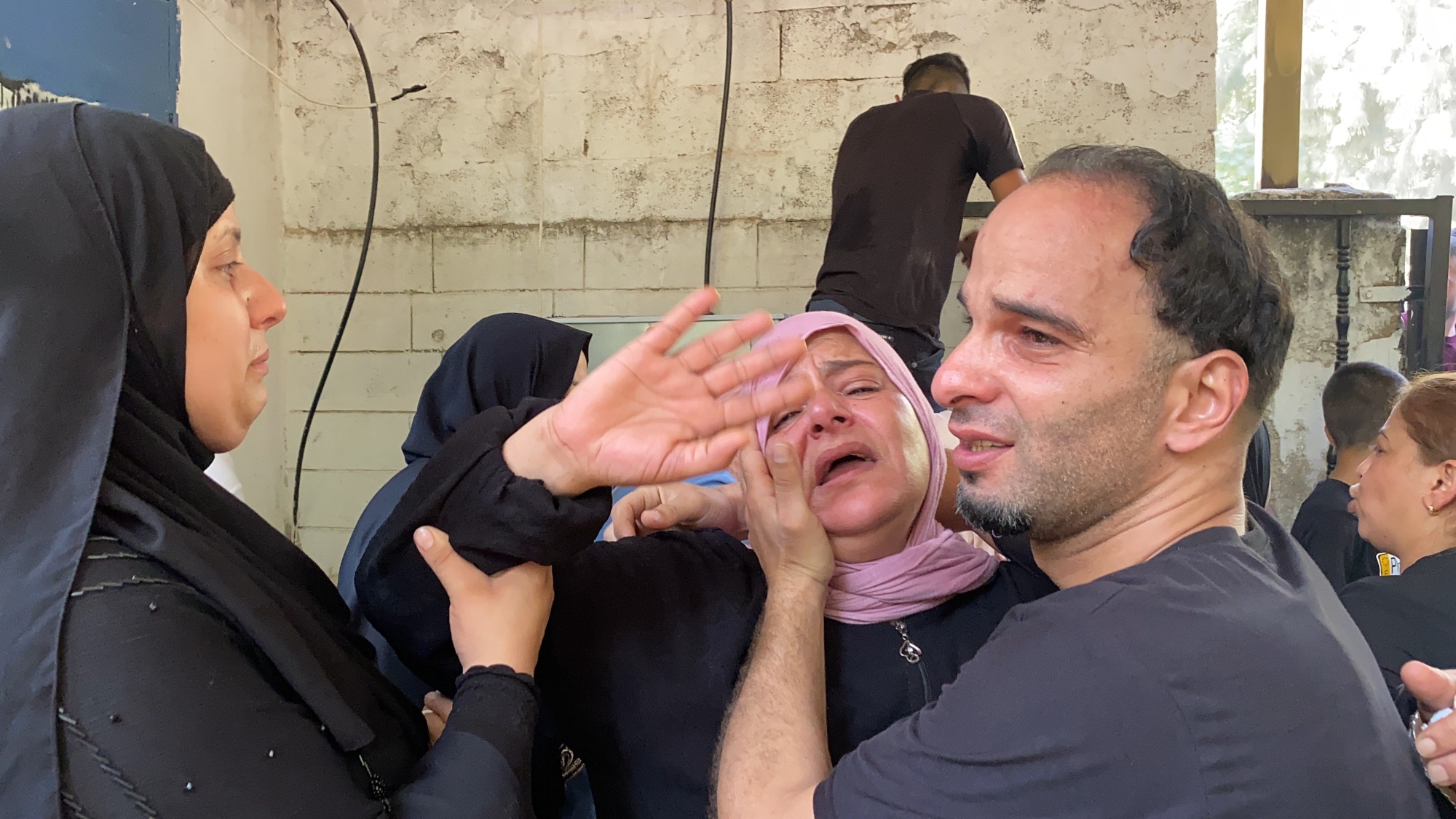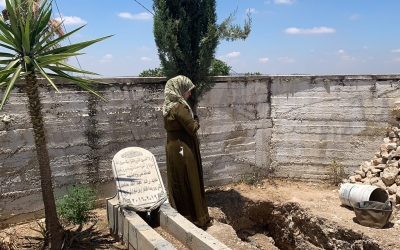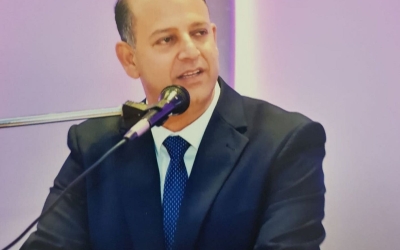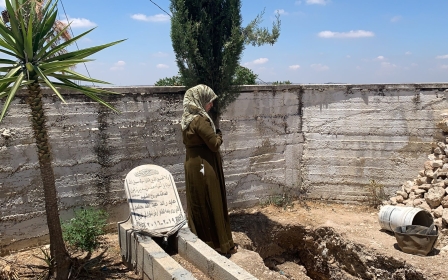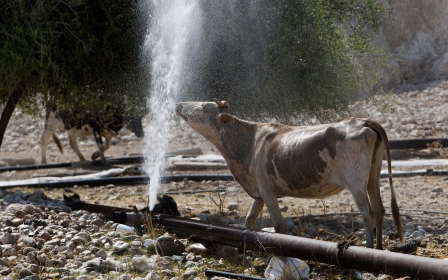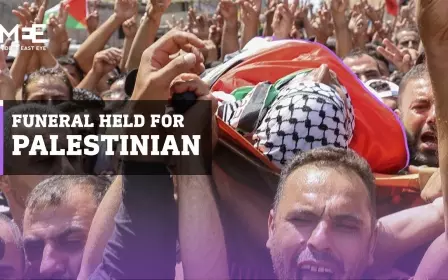West Bank: Israeli forces kill four Palestinians during Jenin camp raid
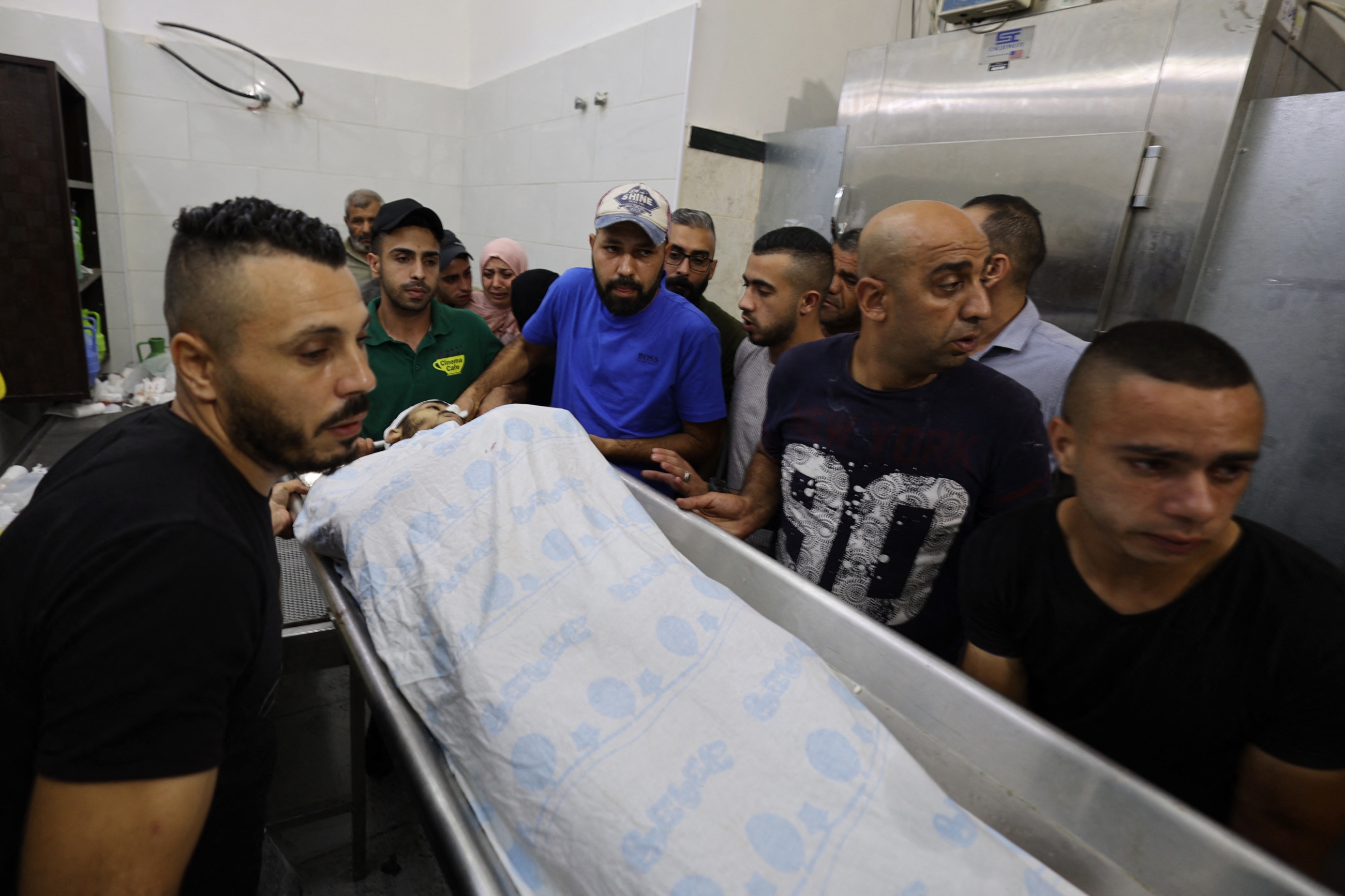
At least four Palestinians were killed by Israeli security forces in the occupied West Bank early on Monday during a raid on the Jenin refugee camp that turned into a gunfight, according to witnesses and medical sources, with two of the bodies confiscated by Israeli border police.
Eyewitnesses told Middle East Eye that gunfire erupted loudly in the refugee camp shortly after dawn prayers.
"We saw a Vespa at the entrance of the camp," a witness said. "Because of the lack of light we could not see at first, then we saw a young man lying next to it."
The young man lying on the ground was later pronounced dead and identified as Saleh Omar, 19.
"When three young men tried to approach him, the occupation (forces) shot at them and emptied an entire cartridge," the witness added.
New MEE newsletter: Jerusalem Dispatch
Sign up to get the latest insights and analysis on Israel-Palestine, alongside Turkey Unpacked and other MEE newsletters
The eyewitnesses said that Israeli forces arrested the young men who had just been shot, despite an ambulance crew trying to negotiate to have them treated.
Four dead, two bodies confiscated
The head of the Jenin governmental hospital, Wissam Abu Bakr, said that two young men were pronounced dead shortly after arriving at the hospital around 4.30am, identifying them as Raed Abu Saif, 21, who was shot in the chest, and Omar, who was shot in the head.
Abu Bakr added that at least four other Palestinians were hospitalised due to injuries sustained during the raid.
Meanwhile, Muntaser Sammour, the head of the Palestinian Prisoner's Society in Jenin, said that Israeli forces had taken the bodies of at least two young Palestinians killed on Sunday night.
One, identified as Amjad Iyad Azmi Husseini, was initially detained in the raid, only for Israeli authorities to say he had later died. Sammour added that Israeli officers had also taken the body of Nour el-din Abdullah Jarrar, 19, shot dead during the raid.
Witnesses in Jenin said that Israeli snipers had been shooting at Palestinians from the rooftops of two buildings, while several young Palestinians, including Jarrar, were firing back.
"The occupation forces shot (Jarrar), and I think it hit his foot because he fell on the ground," one witness told MEE. "Then they fired heavily on him and did not stop until after he had died.
"After a few moments, a young man (Husseini) came forward and tried to drag Nour’s body, pulled him for a distance of maybe a little more than a metre then stopped for a second, and then the forces sniped him immediately," the witness added.
Israeli forces also prevented an ambulance from reaching Jarrar and Husseini, before taking them both away. Husseini later succumbed to his wounds.
Israel's border police claimed they had come under fire while carrying out an undercover arrest raid looking for a Palestinian suspected of involvement in "terrorist" activities.
"The border police force fired back at the terrorists and neutralised them. There were no victims among our ranks," an official told AFP. Israeli forces commonly use the term "neutralised" to indicate that someone was killed.
While Israel has been withholding bodies of Palestinians since 1967, with many buried in the infamous "cemeteries of numbers," the practice has increased exponentially since 2015.
In 2020, Israel's security cabinet decided that it could now withhold the bodies of all slain Palestinians accused of staging attacks on Israelis, not just those said to be Hamas members.
The policy runs in contravention of international law, with the Geneva Convention stating that parties of an armed conflict must bury each other's dead honourably.
Bassam al-Saadi, a leader of the Islamic Jihad movement in Jenin, told MEE that the refugee camp had been a target of violent Israeli raids since the First Intifada, but that recent tensions over settlement expansion was “putting great pressure on the Palestinian street”.
“These young people were in the flower of their youth,” he said of the young men killed on Monday. “Their blood was mixed with the soil of Jenin camp, and they swore that the occupation forces would not tread the ground in the camp."
Ongoing demonstrations
The inhabitants of Jenin and the town of Beita have held several demonstrations in recent weeks against settlement expansion, triggering violent confrontations in which Israeli forces have killed several Palestinians and left hundreds more injured.
Beita residents have been demonstrating since May against the wildcat settlement of Eviatar set up nearby without official permission from Israeli authorities.
The settlement was evacuated in early July but Israeli army troops remain stationed there while authorities deliberate on its fate.
If the settlement is approved by Israel, its founders will be allowed to take up residence there more permanently.
Beita's residents have vowed to continue their campaign until the army also leaves the outpost.
Israel occupied the West Bank during the 1967 war and all Jewish settlements there are considered illegal under international law.
Almost half a million people live in Israeli settlements in the West Bank, alongside 2.8 million Palestinians.
Middle East Eye delivers independent and unrivalled coverage and analysis of the Middle East, North Africa and beyond. To learn more about republishing this content and the associated fees, please fill out this form. More about MEE can be found here.


